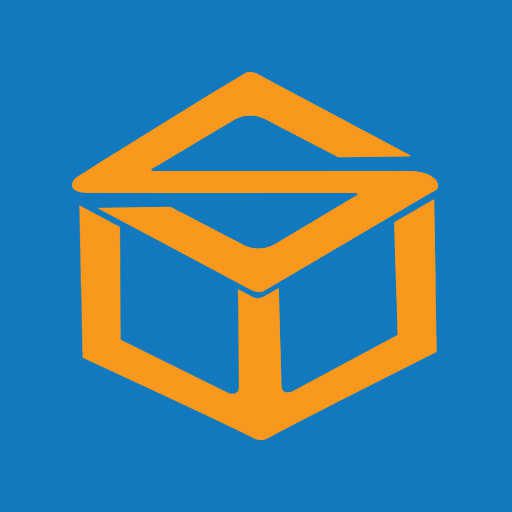Description

NetSuite SuiteCommerce

Inoday eCommerce Solution
Comprehensive Overview: NetSuite SuiteCommerce vs Inoday eCommerce Solution
NetSuite SuiteCommerce and Indoday’s eCommerce solution cater to businesses looking to enhance their online presence with robust eCommerce tools. Here's a comprehensive overview of both:
NetSuite SuiteCommerce
a) Primary Functions and Target Markets:
Primary Functions:
- Unified Commerce Platform: Integrates eCommerce with core business systems like inventory and order management, CRM, and ERP, offering a seamless shopping and operational experience.
- Customer Experience: Provides highly customizable customer-facing web stores designed to offer a rich online shopping experience.
- Mobile Optimization: With responsive design, it ensures shopping experiences are consistent across devices.
- Advanced Analytics and Reporting: Offers data-driven insights to optimize business decisions and operations.
- Promotional Tools: Supports various marketing strategies, including promotions and targeted email campaigns.
Target Markets:
- Small to medium-sized businesses (SMBs).
- Enterprises needing an integrated commerce solution that aligns with back-office operations.
- Retailers, wholesalers, and not-for-profit organizations looking for robust omnichannel capabilities.
b) Market Share and User Base:
NetSuite SuiteCommerce, being part of the Oracle ecosystem, benefits from a solid reputation and large existing customer base. It holds a significant share in the mid-market eCommerce sector, particularly among companies already using Oracle's ERP solutions. Its user base primarily comprises businesses seeking a comprehensive solution that supports both front-end and back-end operations seamlessly.
Indoday eCommerce Solution
a) Primary Functions and Target Markets:
Primary Functions:
- Customization and Flexibility: Offers personalized eCommerce solutions based on the specific business needs, ensuring scalability and adaptability.
- ERP Integration: Designed to work seamlessly with other ERP systems, enhancing operational efficiencies in sales, inventory, and financial management.
- Intelligent Insights: Provides analytics to help businesses make informative decisions regarding operational improvements and customer engagement.
- Cost-Effectiveness: Focuses on providing affordable solutions without compromising on quality and features.
Target Markets:
- Small to medium enterprises (SMEs) that require competitive and customizable eCommerce solutions.
- Businesses in diverse sectors, including retail, manufacturing, and professional services.
- Organizations looking for a cost-effective alternative with robust integration potential.
b) Market Share and User Base:
Indoday's eCommerce solutions cater to a niche segment, particularly appealing to SMEs that may not require the extensive features or cost of larger platforms like SuiteCommerce. Its market share is smaller compared to larger, more established platforms, catering specifically to businesses valuing customization and flexibility.
Key Differentiating Factors:
-
Integration with ERP Systems:
- NetSuite SuiteCommerce: Provides an inherently integrated experience within the Oracle ecosystem, ideal for users already leveraging NetSuite ERP.
- Indoday eCommerce Solution: While offering integration, emphasizes flexibility with various ERP systems, catering to businesses using assorted ERP solutions.
-
Customer and User Experience:
- NetSuite SuiteCommerce: Known for its seamless unification of eCommerce and back-office processes, enhancing the overall customer experience.
- Indoday eCommerce Solution: Places emphasis on customizability and tailored solutions, potentially offering more personalized user experiences.
-
Cost and Scalability:
- NetSuite SuiteCommerce: Generally more expensive due to its extensive feature set and integration capabilities, suited for medium to large-scale businesses.
- Indoday eCommerce Solution: Targeted towards cost-conscious SMEs needing scalable solutions without a hefty price tag.
-
Market Presence and Support:
- NetSuite SuiteCommerce: Benefits from Oracle's global presence and vast support network.
- Indoday eCommerce Solution: Focused on providing personalized support and customization options, appealing to businesses seeking a partner-oriented approach.
In summary, NetSuite SuiteCommerce and Indoday eCommerce Solution offer distinctive propositions suited to different business needs, with SuiteCommerce excelling in comprehensive integration, and Indoday providing cost-effective, flexible solutions.
Contact Info

Year founded :
Not Available
Not Available
Not Available
Not Available
Not Available

Year founded :
Not Available
Not Available
Not Available
Not Available
Not Available
Feature Similarity Breakdown: NetSuite SuiteCommerce, Inoday eCommerce Solution
When comparing NetSuite SuiteCommerce and Inoday eCommerce Solution, it is important to understand their core functionalities, how the user interfaces compare, and if there are unique features that set them apart. Here is a breakdown:
a) Core Features in Common
Both NetSuite SuiteCommerce and Inoday eCommerce Solution are designed to cater to the eCommerce needs of businesses. They share several core features:
-
Integration with ERP and CRM Systems: Both solutions offer robust integrations with ERP and CRM systems, which allow for seamless management of business processes, from order management to customer relationship management.
-
Flexible Product Catalog Management: They provide tools for managing product catalogs, enabling businesses to list, categorize, and organize products effectively.
-
Mobile-Responsive Design: Both solutions ensure that online stores are mobile-responsive, which is crucial in today's market as a significant portion of eCommerce traffic comes from mobile devices.
-
Search Engine Optimization (SEO): Built-in SEO tools to enhance visibility in search engines.
-
Customer Account Management: Abilities for customers to manage their accounts, view order history, and track shipments.
-
Secure Online Payments: Support for various payment gateways ensuring secure transaction processes.
-
Analytics and Reporting: Both offer analytics and reporting capabilities to track sales performance, customer behavior, and other critical metrics.
b) User Interface Comparison
-
NetSuite SuiteCommerce: It prides itself on offering a user-friendly and streamlined interface. The platform emphasizes ease of use with intuitive navigation and customizable dashboards. It is built to seamlessly integrate with other NetSuite products, providing a unified experience across business processes.
-
Inoday eCommerce Solution: While also aiming for user-friendliness, Inoday might not be as polished as NetSuite due to its more tailored and customizable nature. It focuses on providing specific solutions that can be molded according to the unique requirements of a business, which might require a steeper learning curve initially.
c) Unique Features
-
NetSuite SuiteCommerce:
- Unified Business Platform: Its greatest strength is its deep integration with the entire suite of NetSuite products, providing a truly unified business solution across multiple departments.
- Advanced Personalization and Targeting Tools: SuiteCommerce offers robust personalization features that can dynamically change the website experience based on customer profiles or behaviors.
-
Inoday eCommerce Solution:
- Custom Implementation and Integration: Inoday is known for providing customizable solutions and often works extensively with businesses to deliver highly tailored eCommerce platforms that meet specific industry needs.
- Localized Support and Development: As a service provider, Inoday can offer more localized support and potentially faster response times for custom solutions, which can be appealing to businesses with very specific regional requirements or seeking close collaboration.
In summary, while both NetSuite SuiteCommerce and Inoday eCommerce Solution share many common features typical of comprehensive eCommerce platforms, they contrast in user interface and unique offerings. NetSuite is more focused on integration with its broader business platform, whereas Inoday emphasizes customization and adaptability to specific business needs.
Features

Not Available

Not Available
Best Fit Use Cases: NetSuite SuiteCommerce, Inoday eCommerce Solution
NetSuite SuiteCommerce and Inoday eCommerce Solution are both software solutions designed to help businesses manage their eCommerce needs, but they are suited for different types of businesses and scenarios. Here's a detailed overview of their best-fit use cases:
NetSuite SuiteCommerce
a) Types of Businesses or Projects:
-
Mid-sized to Large Enterprises: SuiteCommerce is ideal for businesses that require a robust, scalable eCommerce solution that integrates seamlessly with their existing NetSuite ERP system. This makes it a perfect choice for businesses that are already within the NetSuite ecosystem.
-
B2B and B2C Operations: SuiteCommerce supports both B2B and B2C transactions, making it versatile for various business models. It accommodates complex pricing structures and customer-specific catalogs common in B2B commerce while providing the user-friendly, dynamic interfaces associated with B2C commerce.
-
Multi-Channel Retailers: Businesses that operate both online and offline, or across multiple online marketplaces, benefit from SuiteCommerce’s ability to unify sales and operational data across channels for a cohesive strategy.
-
Businesses in Need of Customization: Companies that require specific customizations and have the development resources to leverage the SuiteCommerce infrastructure will find it beneficial due to its flexibility and comprehensive development tools.
d) Catering to Different Industry Verticals or Company Sizes:
-
Industry Verticals: SuiteCommerce supports a range of industries, including retail, wholesale distribution, manufacturing, and service-based companies, thanks to its customizable templates and robust integration capabilities.
-
Company Sizes: Best suited for mid-sized to large companies that need a comprehensive eCommerce solution with an extensive features list, fully integrated with an ERP system to manage large volumes of transactions and data.
Inoday eCommerce Solution
b) Scenarios Where Inoday is Preferred:
-
Small to Medium Enterprises (SMEs): Inoday is ideal for smaller businesses that may not have the budget or need for a fully integrated ERP solution like NetSuite but still want to establish an efficient and user-friendly online presence.
-
Cost-Conscious Projects: Businesses that are looking for a cost-effective eCommerce solution that offers essential features without the overhead of implementing and managing a complex ERP system.
-
Quick Deployments: Companies seeking a faster time-to-market might prefer Inoday’s eCommerce solution due to its simplicity and more straightforward setup process compared to more comprehensive platforms.
-
Niche Markets or Specific Functionality: Businesses focusing on niche markets where specific eCommerce functionalities are prioritized over the extensive ERP integration, such as simple product catalogs or straightforward checkout processes.
d) Catering to Different Industry Verticals or Company Sizes:
-
Industry Verticals: While less industry-specific than SuiteCommerce, Inoday can cater to various sectors needing essential eCommerce functionalities without extensive back-end complexity. It supports retail and smaller distribution and service companies.
-
Company Sizes: Primarily aimed at small to medium-sized businesses that do not require the elaborate integration features of bigger platforms but still want to compete online effectively with a capable solution.
Both platforms offer distinct advantages depending on the business's specific needs, size, and industry. NetSuite SuiteCommerce provides a robust platform integration for comprehensive needs, while Inoday is suitable for smaller businesses prioritizing simplicity and cost-effectiveness.
Pricing

Pricing Not Available

Pricing Not Available
Metrics History
Metrics History
Comparing undefined across companies
Conclusion & Final Verdict: NetSuite SuiteCommerce vs Inoday eCommerce Solution
Conclusion and Final Verdict: NetSuite SuiteCommerce vs Inoday eCommerce Solution
a) Best Overall Value
Determining the best overall value between NetSuite SuiteCommerce and Inoday eCommerce Solution depends on specific business needs, budget, and integration requirements. However, if we are to assess based on general capabilities, scalability, and integration potential, NetSuite SuiteCommerce tends to offer a more comprehensive package, especially for businesses already using or considering the broader NetSuite ERP system. Its seamless integration with other NetSuite applications and robust features make it a powerful tool for businesses looking for an all-in-one solution.
b) Pros and Cons
NetSuite SuiteCommerce:
Pros:
- Integration: Seamlessly integrates with the NetSuite ERP system, providing a unified platform for managing business operations.
- Scalability: Suitable for businesses of various sizes and can scale as business grows.
- Comprehensive Features: Offers a wide range of features, including inventory management, order management, and customer support.
- Customizability and Flexibility: Highly customizable to fit specific business processes and requirements.
- Global Reach: Supports multiple currencies and languages, making it ideal for companies with international operations.
Cons:
- Cost: Can be expensive, particularly for small businesses or startups.
- Complexity: Implementation can be complex and may require dedicated IT resources or assistance from NetSuite professionals.
- Learning Curve: Users might face a steep learning curve due to the extensive features and capabilities.
Inoday eCommerce Solution:
Pros:
- Cost-Effective: Generally more affordable, making it accessible to smaller businesses or those on a tight budget.
- User-Friendly: Typically simpler to implement and use, with a more straightforward interface.
- Customization Options: Offers customization, though perhaps not as extensive as NetSuite.
- Support: Often provides dedicated support tailored to their eCommerce platform.
Cons:
- Limited Integration: While it may integrate with certain systems, it does not match the seamless integration capabilities of NetSuite SuiteCommerce.
- Scalability: Might not be as scalable as NetSuite, posing challenges for rapidly growing businesses.
- Feature Set: May have a less comprehensive set of features compared to NetSuite SuiteCommerce, particularly in areas like advanced analytics and global operations.
c) Recommendations for Users
-
Assess Business Needs: Companies should thoroughly assess their specific business needs and growth plans. If seamless integration with an ERP system is a priority, especially for larger enterprises, NetSuite SuiteCommerce may be the better choice. Conversely, if budget constraints are significant, or if the business is smaller or in the startup phase, Inoday eCommerce Solution could be more fitting.
-
Evaluate Budget: For businesses with limited financial resources, it is crucial to weigh the added benefits of NetSuite SuiteCommerce against its higher costs. Consider long-term benefits and ROI when evaluating both solutions.
-
Consider Technical Resources: Organizations should consider their technical resources and capabilities. NetSuite's powerful features come with a necessity for more robust implementation and support processes.
-
Test the Platforms: Whenever possible, trial both solutions to gauge user experience, ease of use, and how well they align with existing processes. Engaging with vendor demonstrations can also provide valuable insights.
-
Future Growth: Businesses with aggressive growth strategies or plans to expand internationally should seriously consider the potential limitations of each solution in terms of scalability and global support.
In conclusion, while NetSuite SuiteCommerce offers a more integrated and feature-rich solution beneficial for larger or rapidly growing businesses, Inoday eCommerce Solution provides a cost-effective, user-friendly option suitable for smaller businesses or those with less complex needs. Each option has strengths and drawbacks that should be carefully considered in line with the company’s requirements and strategic objectives.
Add to compare
Add similar companies



